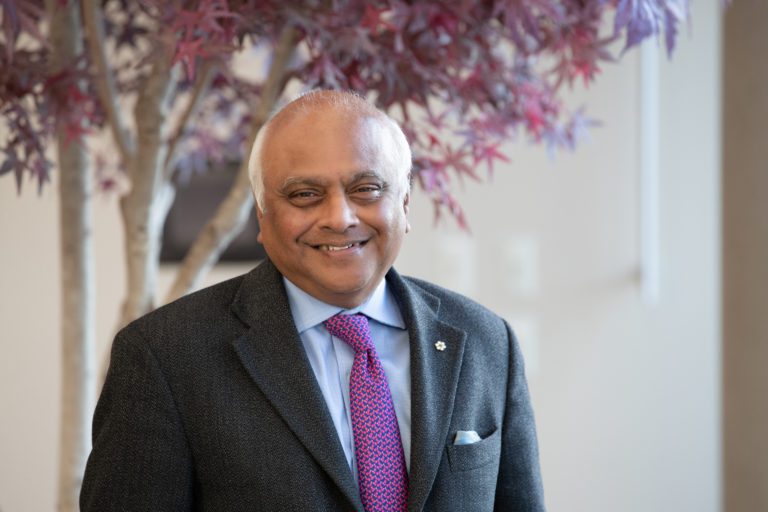
Sonia Anand, GTA vaccine clinic
A new study at PHRI investigates the immune response of the COVID-19 vaccine for the high-risk South Asian community in Canada, and seeks to determine how many of them are hesitant or refuse to take the vaccine, and the underlying reasons.
The fastest growing non-white ethnic group in Canada, South Asians (people who originate from the Indian sub-continent) have a 5 to 10-fold higher risk of SARS-CoV-2 infection, and a 1.5 to 2-fold higher mortality risk after SARS-CoV-2 infection, compared to white Canadians.
The study, called COVID CommUNITY-South Asian, will involve a total of 3,000 South Asian Canadians in the Greater Toronto Area (GTA) in Ontario and in the Greater Vancouver Area (GVA) in B.C.
Researchers will seek to understand if these ethnic differences may be explained by unique socio-cultural factors, such as multigenerational households, occupational factors (e.g. essential work) and biological factors (e.g. genetic predisposition, or pathophysiological differences in susceptibility or response to infection).
PHRI Senior Scientist Sonia Anand, who is the Principal Investigator for the GTA part of the study, notes that “this is a prospective cohort study – meaning we enroll participants at community vaccination clinics in South Asian ‘hot spots’ such as Brampton and the rest of the GTA, and follow them forward in time to collect contextual information including their living and work conditions, clinical and health care access information.”
She adds, “this is a more targeted approach to conducting a study than ‘after the fact’ approaches, such as inferring ethnicity by last name or by postal code in participant data.” (For the Greater Toronto Area part of the study, please email: covidcommunity@phri.ca.)
Immunogenicity comparison
Dried blood spots to measure antibodies to SARS-CoV-2 will be analyzed before and after COVID-19 vaccine of this population. Immunogenicity will be compared between vaccinated and non-vaccinated South Asians, with adjustments for socioeconomic status, chronic disease co-morbidities (i.e. hypertension, diabetes, cardiovascular disease), and occupational health factors.

Lawrence Loh
Information collected will aid public health decision-makers and physicians in understanding vaccine access, uptake, immunogenicity and effectiveness, and will enhance knowledge translation regarding COVID-19 vaccination in the South Asian community.
Region of Peel among the partners
“We know that the South Asian community will need specific attention and targeted outreach, particularly given the disproportionate impacts of COIVD-19 on this ethnocultural community,” notes Lawrence Loh, Chief Medical Officer of Health for the Region of Peel (in the GTA), adding that PHRI’s study can “lead to more people within the South Asian community making the choice to accept this life-saving vaccine.”
Co-investigators include McMaster University’s: Dawn Bowdish (immunology); Russell de Souza (epidemiology); Mark Loeb (infectious diseases); Sujane Kandasamy (qualitative research); Gita Wahi (pediatrics); Rahul Chanchlani (health services research); Zubin Punthakee (epidemiology); and Shrikant Bangdiwala, who is also a Senior Scientist and Director, Statistics, at PHRI. Shelly Bolotin (sero-epidemiology) from Public Health Ontario and the University of Toronto is also an investigator. Study team members also include Jodi Miller, Dipika Desai, Jayneel Limbachi, Farah Khan, and Zainab Khan.
The Government of Canada’s COVID-19 Immunity Task Force (CITF) is investing approximately $1.5 million in the COVID CommUNITY – South Asian study.
Greater Vancouver Area
Simon Fraser University’s Scott Lear, is leading the British Columbia arm of the study. If you are 18+ years old, live in BC and identify as South Asian, please reach out to Scott and his team at: pure@sfu.ca for more information on participating in this important study.





